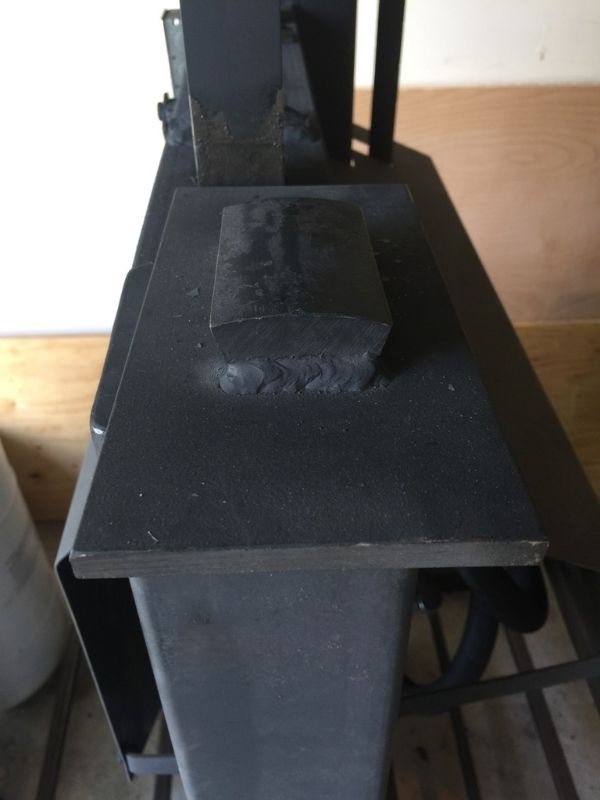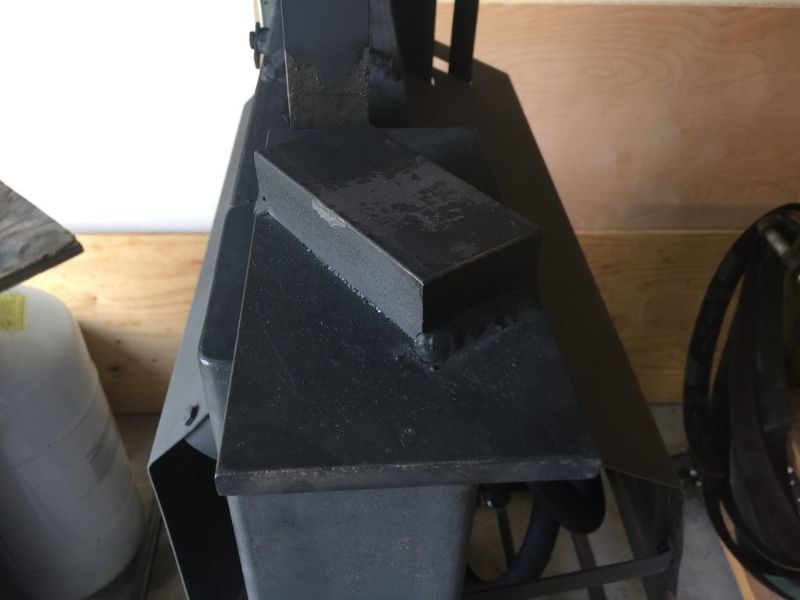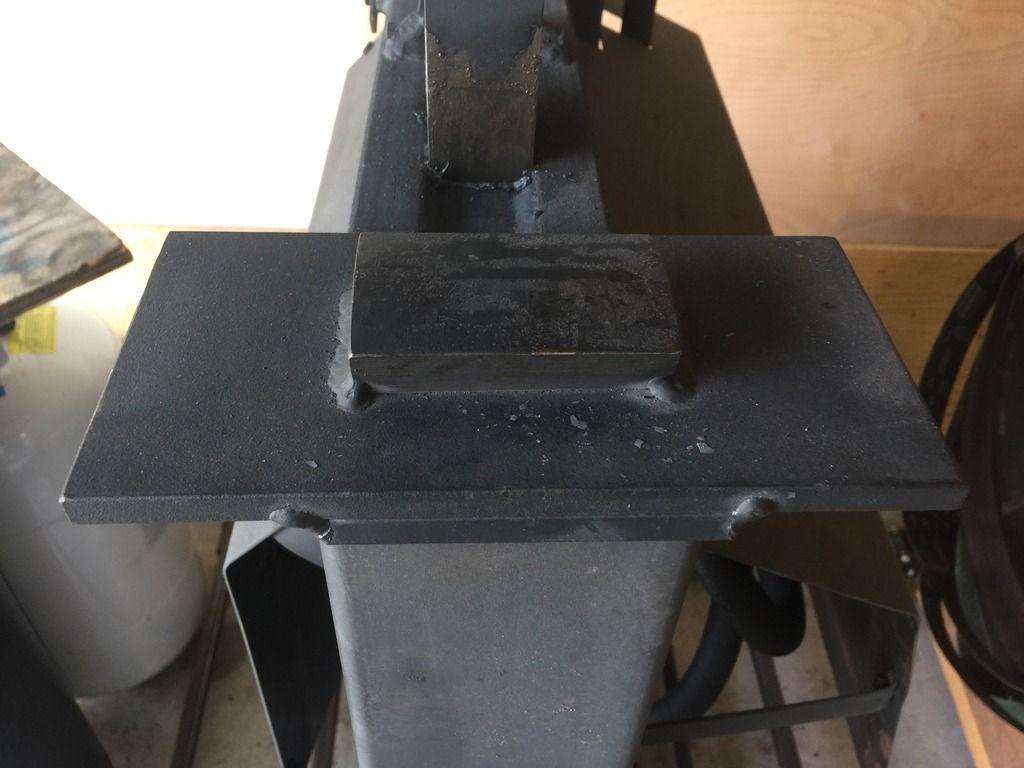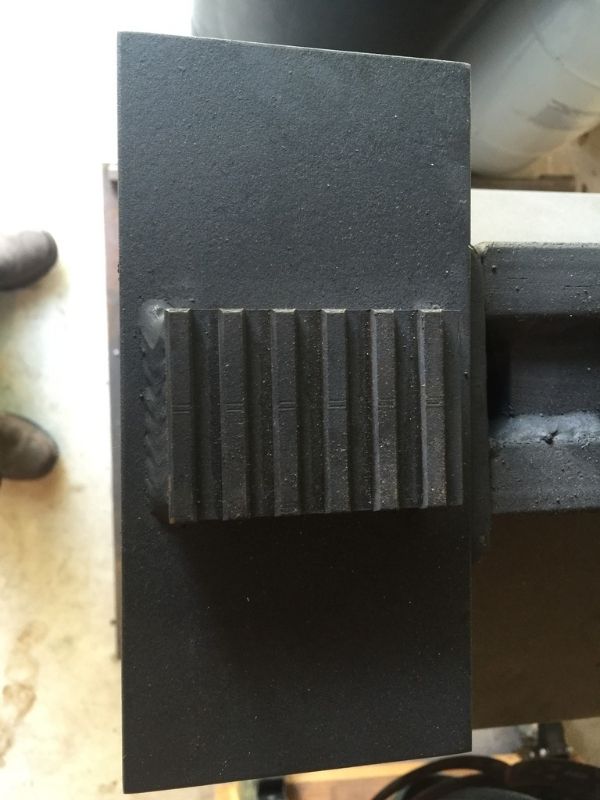Oh yeah, Kevin, I now do a spheroidizing anneal on my O-1. It is so much nicer to work with! I do not remember the exact operation, but I got it from a very reliable source!
( http://www.cashenblades.com/steel/o1.html)
I have the process written in my notebook. I don't memorize anything I can look up easily.
( http://brightdrops.com/albert-einstein-quotes)
Joshua States
www.dosgatosforge.com
https://www.youtube.com/channel/UCdJMFMqnbLYqv965xd64vYg
https://www.facebook.com/dos.gatos.71
Also on Instagram and Facebook as J.States Bladesmith
“So I'm lightin' out for the territory, ahead of the scared and the weak and the mean spirited, because Aunt Sally is fixin’ to adopt me and civilize me, and I can't stand it. I've been there before.â€
I am new to both welding and forge welding. I only recently bought a press from Uncle Al. My first billet is currenlty 13 layers with 1095 and 15N20 alternating with the 1095 on the 2 outer layers. The length is 8 inches and I inch wide. I have not forge welded it yet. I plan to use kerosene instead of Borax as I do not want to destroy the lining in my gas forge. I plan to take the layer count up to around 130 layers. I bought several dies from Uncle Al and planned to use the ladder die on the one first. After grinding off the excess metal I was going to normalize the billet. I planned to use the billet for blade steel. Hope I covered all the questions.
Scott
Scott, I personally wouldn't 'slow' cool anything with more carbon than 1080 has. Even the letting it slow cool in the forge thing could get you into trouble with 1095. I'd just let it air cool after the normalizing and subsequent thermal cycles. I've done a fair bit of 1095 and W2 both and I've never had any issues drilling/cutting/machining after just open air cooling.
To be honest, I've never done anything slower than open air cooling on 1075/1084/80CrV2/5160 and never had any issues drilling or cutting either.
Thanks John.
|quoted:
I am new to both welding and forge welding. I only recently bought a press from Uncle Al. My first billet is currenlty 13 layers with 1095 and 15N20 alternating with the 1095 on the 2 outer layers. The length is 8 inches and I inch wide. I have not forge welded it yet. I plan to use kerosene instead of Borax as I do not want to destroy the lining in my gas forge. I plan to take the layer count up to around 130 layers. I bought several dies from Uncle Al and planned to use the ladder die on the one first. After grinding off the excess metal I was going to normalize the billet. I planned to use the billet for blade steel. Hope I covered all the questions.
Scott
OK. So depending on the thickness of the 1095 & 15N20, 13 layers 1" wide is an OK starting billet. But, let's do the math to get to 130 layers. I don't know how thick the starting billet is, but If you can weld and draw it out to 12" long, you can cut into 3 pieces, restack, and weld. You will now have 39 layers. Repeat that process and you will have 117 layers. (if you do the last stack in 4 pieces, you will have 156 layers)
I use diesel fuel instead of kerosene, just because it's a lot easier to get and it works just as well. I also use a small amount of flux just so I can read the temp correctly and know when it's ready to weld. Did you get a pair of flat dies and a pair of drawing dies? (I am not familiar with Uncle Al's die selection)
You say you are new to welding and forge welding, how familiar are you with press operations and forging operations (drawing, tapering, fullering, etc.) in general?
Joshua States
www.dosgatosforge.com
https://www.youtube.com/channel/UCdJMFMqnbLYqv965xd64vYg
https://www.facebook.com/dos.gatos.71
Also on Instagram and Facebook as J.States Bladesmith
“So I'm lightin' out for the territory, ahead of the scared and the weak and the mean spirited, because Aunt Sally is fixin’ to adopt me and civilize me, and I can't stand it. I've been there before.â€
Joshua the thickness of the 1095 and 15n20 are both 1/8". I miss counted as I only have 11 layers. Using your math I would get to 132 if I use 4 on the last weld.
I have flat, drawing and 3 pattern dies that I bought with the press. As for the operation of the press, I have used it to draw out some steel into rat tails while making some viking knives. So I am relatively new to all of this but I have to get started sometime. I have watched a lot of videos with people using a press. If the target is to get the billet to 12 inches I think I can draw it out. As for cutting and re-stacking, I will cut the billet with my portaband and grind the scale off with my KMG.
I plan on forge welding this Sunday. I don't have any borax but will get some tomorrow.
I posted a link to a video I did on using the press to make a billet in the educational videos thread on this forum.
http://www.americanbladesmith.com/ipboard/index.php?/topic/2297-hydraulic-press-controls/
Joshua States
www.dosgatosforge.com
https://www.youtube.com/channel/UCdJMFMqnbLYqv965xd64vYg
https://www.facebook.com/dos.gatos.71
Also on Instagram and Facebook as J.States Bladesmith
“So I'm lightin' out for the territory, ahead of the scared and the weak and the mean spirited, because Aunt Sally is fixin’ to adopt me and civilize me, and I can't stand it. I've been there before.â€
In order to gauge the thickness while drawing out, you will need to make some limit blocks or "kiss blocks" to set up between the top and bottom dies. Making a set of these for the flat dies is pretty easy, just cut a few pieces of different sized square stock to lay on the bottom flat die to limit the compression. I suggest pieces about the same length as the width of the die from 1/4" to 1-1/4 inch in increments of 1/4" and a couple pieces of 1/8" flat for the in-between sizes. If you want to get stock in increments of 1/8", that would be even better.
On those drawing dies, it becomes a little tricky because of the full curve across the die length. The differential in the curve looks about 1/4" or less. Maybe you could take some square stock and balance it on the lower die and compress until the top die contacts the block. Then take a small piece of 1/4" stock and wedge it under each end of the block and tack weld it to the block for feet. Now you can take the block (with feet attached) and remove it when not in use. If that doesn't make any sense, I can make a drawing of it.
Joshua States
www.dosgatosforge.com
https://www.youtube.com/channel/UCdJMFMqnbLYqv965xd64vYg
https://www.facebook.com/dos.gatos.71
Also on Instagram and Facebook as J.States Bladesmith
“So I'm lightin' out for the territory, ahead of the scared and the weak and the mean spirited, because Aunt Sally is fixin’ to adopt me and civilize me, and I can't stand it. I've been there before.â€
Thanks for the feedback Joshua. I will make some of the kiss blocks. should be easy. As for the drawing die, I think I am following you but will come back with questions.
I sent you a pm with the results of my first try.
|quoted:
Thanks for the feedback Joshua. I will make some of the kiss blocks. should be easy. As for the drawing die, I think I am following you but will come back with questions.
I sent you a pm with the results of my first try.
Here's a quick sketch of what I mean and how I weld the billet to keep it together in the forge.
Joshua States
www.dosgatosforge.com
https://www.youtube.com/channel/UCdJMFMqnbLYqv965xd64vYg
https://www.facebook.com/dos.gatos.71
Also on Instagram and Facebook as J.States Bladesmith
“So I'm lightin' out for the territory, ahead of the scared and the weak and the mean spirited, because Aunt Sally is fixin’ to adopt me and civilize me, and I can't stand it. I've been there before.â€
Thanks Joshua for the picture and the advise on the Mig. I will put it to work.
Scott
|quoted:
Your very slow ramp up, time at solution, and very slow ramp down made some pretty nasty things in that steel. You probably have carbide networks in the grain boundaries, so you will want to take you time forging and do it a little warmer. Matt's suggestion for a fine spheroidal anneal is good for your final product but at this phase, and considering that you will be cutting it, an industrial spheroidizing would be a good idea, especially since you have the ramp capability to do it.
Normalize the bar to break up the networks you have, and then heat it (no ramp, just heat it) to 1375F for 1 hour and then ramp down no faster than 50F per hour to below 800F-850F. This is what I do when I need to mill, cut or otherwise machine my steel and want my tools to be fine with it. You will have coarse spheroidal carbides but it will cut like butter.
if you don't have a controlled oven, will using vermiculite get you close to this result?





